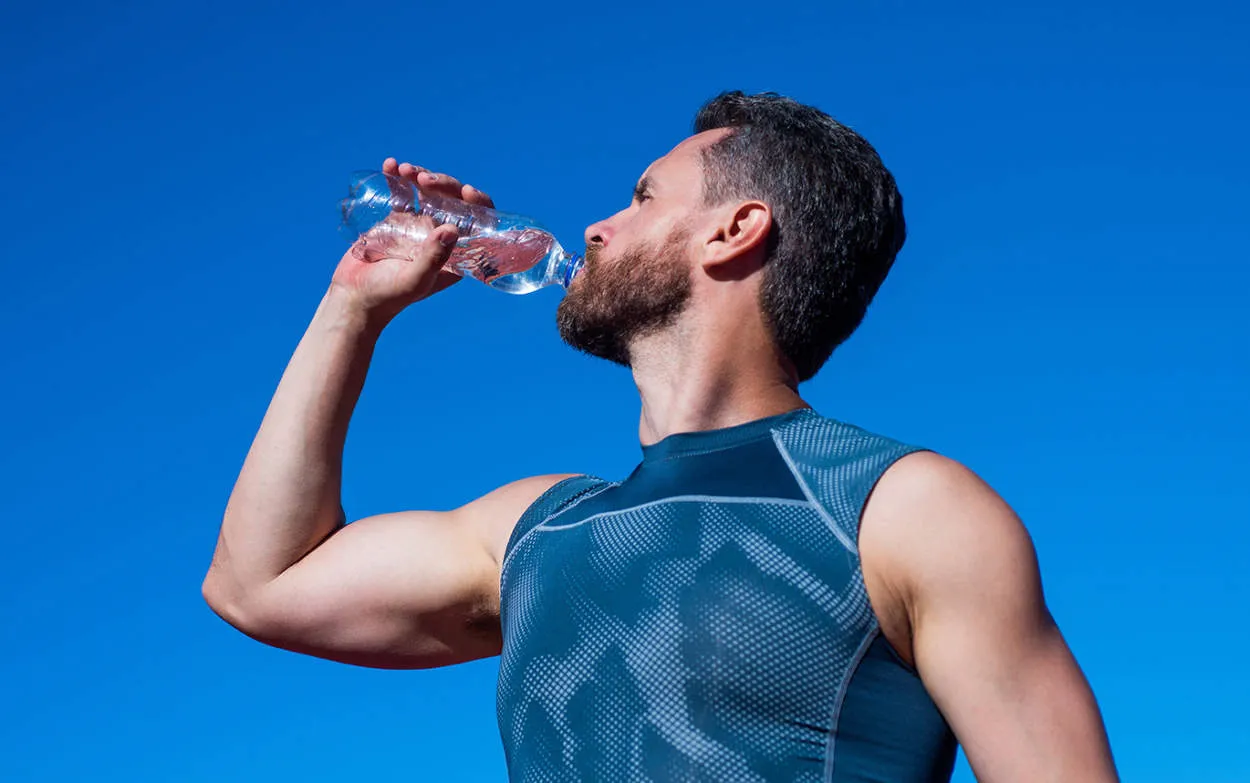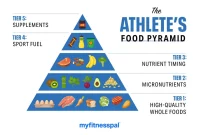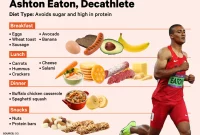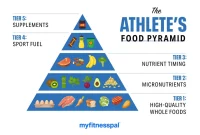Hydration is crucial for athletes to maintain optimal performance. In addition to water, there are other effective hydration strategies that can help athletes stay properly hydrated. This article explores the various strategies beyond just drinking water that can enhance athletes’ hydration and ultimately improve their athletic performance.
Understanding the Importance of Hydration
In the world of athletics, maintaining proper hydration is crucial for optimal performance and overall health. When it comes to hydration strategies for athletes, it goes beyond just drinking water. Here, we delve into why hydration is important and explore various ways athletes can ensure they stay properly hydrated.
The Significance of Hydration for Athletes
Hydration plays a vital role in athletic performance. Water makes up a significant portion of our bodies, and during physical activity, we lose fluids through sweat. Proper hydration helps to regulate body temperature, facilitate nutrient absorption, and transport oxygen and nutrients to muscles for energy production.
Beyond Water: Other Fluid and Electrolyte Sources
While water is essential, athletes need to replenish not just fluids but also electrolytes lost through sweat. Electrolytes are minerals like sodium, potassium, and calcium that help maintain fluid balance and muscle function. Incorporating sports drinks, coconut water, or electrolyte-rich foods such as bananas or yogurt can aid in replenishing both fluid and electrolyte levels.
Timing and Quantity
When it comes to hydration, it’s not just about drinking enough fluids but also timing and quantity. Athletes should aim to consume fluids before, during, and after exercise. Pre-exercise hydration helps ensure adequate fluid stores, whereas during exercise, regular sips of fluids can help maintain hydration levels. Post-exercise, proper rehydration aids in muscle recovery and replenishment of electrolytes.
Individual Differences and Monitoring
Every athlete has unique hydration needs, influenced by factors such as body weight, exercise intensity, climate, and individual sweat rates. It is essential to monitor hydration status, such as urine color or body weight changes, to ensure adequate fluid intake and prevent dehydration.
Conclusion
In conclusion, understanding the importance of hydration for athletes is crucial for optimizing performance and overall well-being. Hydration strategies should go beyond simply drinking water and incorporate electrolyte-rich fluids and appropriate timing. By monitoring their hydration status and individual needs, athletes can enhance their performance and maintain top form.
Electrolytes and Sports Performance
Hydration is crucial for athletes to optimize their sports performance, but it goes beyond just drinking water. Electrolytes play a vital role in maintaining proper hydration levels during intense physical activity.
Electrolytes are minerals that help balance fluids in the body, regulate muscle contractions, and support nerve function. They include potassium, sodium, calcium, and magnesium. During exercise, electrolytes are lost through sweat, and replenishing them is essential for maintaining optimal performance.
When athletes only consume plain water, they may dilute the electrolyte concentrations in their bodies, leading to an electrolyte imbalance. This can result in muscle cramps, fatigue, and impaired performance.
Importance of Electrolytes in Hydration
Electrolytes help the body retain fluids, prevent dehydration, and maintain proper muscle function. Sodium, in particular, plays a crucial role in retaining water in the body. It assists in fluid balance, stimulates thirst, and helps with the absorption of glucose and other nutrients.
Potassium is essential for nerve and muscle function. It aids in preventing muscle cramps and supporting proper heart rhythm during physical activity. Calcium is crucial for bone health and muscle contractions, while magnesium is necessary for energy production and muscle relaxation.
Hydration Strategies Beyond Water
While water is essential for hydration, incorporating electrolyte-rich beverages or supplements can further enhance an athlete’s performance. Sports drinks, for example, contain electrolytes such as sodium and potassium, which help restore the mineral balance in the body.
In addition to sports drinks, athletes can also consume electrolyte-infused water, coconut water, or fruit juices to replenish electrolytes lost during exercise. It is crucial to read the labels and choose beverages with balanced electrolyte compositions and avoid those with excessive sugar.
Athletes can also consider consuming foods rich in electrolytes, such as bananas, citrus fruits, yogurt, nuts, and leafy greens. These foods not only provide essential electrolytes but also offer additional nutrients and antioxidants beneficial for overall health.
Individual Hydration Needs
It is important to note that individual hydration needs may vary based on factors such as body weight, exercise intensity, duration, and environmental conditions. Consulting a sports nutritionist or healthcare professional can help athletes determine their specific electrolyte and fluid requirements.
In conclusion, maintaining proper hydration is essential for athletes to optimize sports performance. Electrolytes play a crucial role in supporting hydration by helping retain fluids, regulating muscle function, and preventing dehydration. Incorporating electrolyte-rich beverages, foods, and considering individual hydration needs can greatly benefit athletes in achieving their performance goals.
Innovative Hydration Solutions
Hydration is crucial for athletes to maintain optimum performance and prevent dehydration. While water is undoubtedly important, there are several innovative hydration solutions that can enhance an athlete’s fluid intake. These strategies go beyond simply drinking water and can provide additional benefits.
1. Electrolyte-Infused Beverages
Electrolyte-infused beverages, such as sports drinks, are specifically formulated to replenish lost electrolytes during physical activity. These drinks not only help maintain fluid balance but also provide essential minerals like sodium, potassium, and magnesium that are lost through sweat.
2. Coconut Water
Coconut water is a natural source of hydration that offers a variety of nutrients. It contains electrolytes and is high in potassium, helping prevent muscle cramps. Additionally, coconut water is low in sugar, making it a healthier alternative to some commercial sports drinks.
3. Hydration Monitoring Devices
Modern technology has introduced hydration monitoring devices that can track an athlete’s fluid intake and provide real-time feedback. These devices can help athletes stay on top of their hydration goals by reminding them to drink enough water and monitoring their electrolyte levels.
4. Hydration Backpacks
For athletes engaged in endurance activities like trail running or cycling, hydration backpacks offer a convenient way to carry water or sports drinks. These backpacks come with built-in hydration systems, allowing athletes to stay hydrated without breaking their stride.
5. Natural Infused Water
An alternative to flavored sports drinks is natural infused water. Athletes can add slices of fruits, herbs, or even cucumber to their water, infusing it with natural flavors. This provides a refreshing taste while also benefiting from the vitamins and minerals present in the ingredients.
Conclusion
By incorporating innovative hydration solutions into their routine, athletes can improve their performance and endurance. Understanding the importance of hydration and exploring these options beyond plain water can lead to better overall hydration levels and help athletes reach their full potential.
The Role of Hydration in Recovery
Hydration plays a crucial role in the recovery process for athletes. Proper hydration not only helps athletes perform at their best during physical activity but also aids in the recovery and repair of their bodies post-exercise.
During intense workouts or competitions, athletes lose fluids through sweat. It is essential to replenish these lost fluids to maintain optimal performance and prevent dehydration. Water is the most common choice for hydration, but it’s important to recognize that adequate hydration goes beyond just drinking water.
Electrolytes, such as sodium, potassium, and magnesium, also play a significant role in maintaining hydration levels. These minerals help regulate fluid balance, muscle function, and nerve transmission. Athletes should consider consuming electrolyte-rich drinks or incorporating electrolyte tablets into their hydration strategies to ensure proper electrolyte balance.
Additionally, timing plays an essential role in hydration for recovery. Rehydrating immediately after exercise is crucial to replenish fluids lost during physical activity. Studies suggest that consuming a beverage with both carbohydrates and proteins within the first 30 minutes post-exercise can enhance muscle recovery, glycogen replenishment, and rehydration.
Athletes should also maintain hydration throughout the day, not just during workouts. Well-hydrated muscles are less prone to injury and can recover more efficiently. This means regular hydration should be a priority, even on rest days, to aid in overall recovery.
In conclusion, hydration is a vital component of the recovery process for athletes. It is crucial to replenish lost fluids and maintain electrolyte balance to optimize performance and prevent dehydration. By incorporating proper hydration strategies into their routine, athletes can enhance their recovery, reduce the risk of injuries, and perform at their best.
Myths About Hydration in Sports
Hydration is a key factor in athletic performance, but there are several myths surrounding this topic. Let’s debunk some of these myths and explore effective hydration strategies for athletes.
Myth 1: Water is Enough
While water is essential for staying hydrated, it is not always sufficient for athletes engaged in intense physical activity. Sweat loss during exercise leads to electrolyte imbalances, which can affect performance. To maintain optimal hydration, athletes should consider consuming sports drinks that replenish electrolytes.
Myth 2: Drinking as Much as Possible is Best
Chugging excessive amounts of water does not necessarily enhance performance. In fact, it can lead to hyponatremia, a condition where the blood’s sodium levels become diluted. Athletes should aim for a balance by drinking to thirst and monitoring their urine color for hydration status.
Myth 3: Caffeinated Drinks Cause Dehydration
Contrary to popular belief, moderate consumption of caffeinated beverages like coffee or tea does not dehydrate individuals. While caffeine has a mild diuretic effect, the fluids in these drinks still contribute to overall hydration. However, it’s important to avoid excessive caffeine intake, as it may lead to increased heart rate and nervousness.
Myth 4: Pre-hydrating is Enough
Pre-hydrating before an event is important, but relying solely on this initial hydration is inadequate. Athletes need to continue hydrating during activity to replace fluids lost through sweat. Regular fluid intake, both before and during exercise, is crucial for maintaining performance and reducing the risk of dehydration.
Myth 5: Thirst is a Reliable Indicator of Hydration
Although thirst is an indicator of dehydration, solely relying on it may not be enough. Athletes should be proactive and establish a hydration plan that goes beyond relying on thirst alone. Monitoring sweat rate, body weight changes, and urine color can provide additional insights into one’s hydration status.
Myth 6: Sports Drinks are Always Necessary
Sports drinks can be beneficial for athletes engaged in prolonged, high-intensity activities lasting longer than an hour. However, for shorter workouts or low-intensity exercises, water is usually sufficient for hydration. Understanding the duration and intensity of training can help athletes determine whether sports drinks are necessary.
Conclusion
In conclusion, debunking these myths is essential for athletes to develop effective hydration strategies. It’s important to understand that hydration requirements vary depending on individual factors such as exercise duration, intensity, and sweat rate. By debunking these myths and optimizing hydration techniques, athletes can maximize their performance and reduce the risk of dehydration-related complications.
Conclusion
In conclusion, proper hydration for athletes goes beyond just drinking water. It is essential to consider factors such as electrolyte balance, timing, and individual needs. Incorporating sports drinks, consuming water-rich foods, and monitoring fluid intake are crucial strategies to optimize performance and prevent dehydration.




